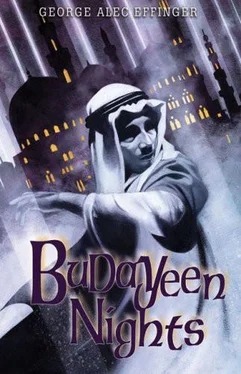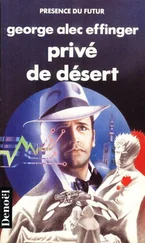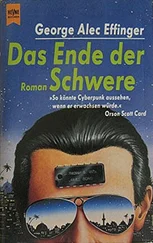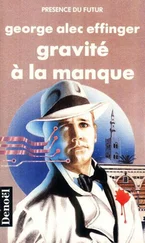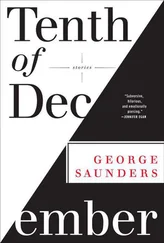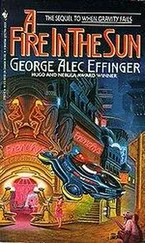BUDAYEEN NIGHTS
GEORGE ALEC EFFINGER
With a Foreward and Story
Introductions by Barbara Hambly
FOREWORD — Barbara Hambly
SCHRÖDINGER'S KITTEN
Marîd CHANGES HIS MIND
SLOW, SLOW BURN
Marîd AND THE TRAIL OF BLOOD
KING OF THE CYBER RIFLES
Marîd THROWS A PARTY
THE WORLD AS WE KNOW IT
THE CITY ON THE SAND
THE PLASTIC PASHA
For Nell, Denise, Helen, Valerie,
and all the others without whom
there would be no Budayeen.
— GAE
IT ALWAYS SURPRISED GEORGE WHEN PEOPLE WOULD refer to him as a science fiction writer.
It was a natural perception, of course, of someone who made his debut under the auspices of Damon Knight; and to the end of his days, George used a science-fiction palette to tell fantasy stories. But it wasn’t until he began writing the Budayeen novels — When Gravity Fails, A Fire in the Sun , and The Exile Kiss — that he settled fully into science fiction mode, and reinvented himself as one of the founding fathers of Cyberpunk.
The setting of the Budayeen came about quite naturally, and is intrinsic to the writing of Gravity . George had a very dark side to his nature, a fascination with the underworld and the demimonde that came about, I think, because many of his mother’s friends were hookers and strippers back in Cleveland: he used to go and watch them dance when he was in his early teens. Maybe this was why he was so comfortable in the shadow-world of New Orleans. (I still remember my first visit to New Orleans, sitting in a bar with George, talking to the barmaid, and watching the dancer on the runway: George leaned over to me and whispered, “You’re the only genetically female person in this room.”)
He’d hang out in the bars along Chartres and Decatur Streets, nursing a drink, talking to the girls and not-quite-girls, and playing pinball until nearly dawn. He was good friends with a lot of the denizens of that world, including a sexchange named Amber who took the wrong man home one night and ended up being beaten to death and thrown off a balcony.
The New Orleans police being what they were, no investigation was made.
George’s outpouring of outrage and helplessness became When Gravity Fails . He set it in the nameless Muslim city he’d invented for “The City on the Sand” — which became a pay-the-medical-bills book called Relatives — because some of the characters were based on real people, including the local Mafia boss. But when you read it, it’s obviously the French Quarter, with maybe a little of the East Village in the sixties where George lived after dropping out of Yale. Being George, he studied Islamic culture extensively, so as not to inadvertently insult those whose world it actually is. He had the manuscript read by Muslim friends, and at one point the office staff of the local Islamic Cooperative Association phoned him up to compliment him on the respect he’d shown for their faith and culture. (“But we’re liberal Sunnis,” the caller added. “I don’t know what the Shi’ites would say about it.”)
George intended Gravity as a one-shot, but when it took off in popularity and Bantam asked him to do a second book, he found he did have another novel-length tale to tell of that universe, based around the death of his own grandfather, a Cleveland policeman who was killed in the line of duty. He said the Budayeen was the first world he’d created that had depth and richness, whose characters lived lives of their own beyond the boundaries of any individual tale. I think this is the reason the world continues to fascinate: because it is real.
His protagonist, Marîd Audran, fascinates and charms because he, too, is real — or as real as things get in the Budayeen. George said frankly that, like the hapless science-fiction writer Sandor Courane of some of his other tales, Marîd is based on himself. It amused George that many readers take Marîd at Marîd’s own evaluation of himself: cool, clever, street-smart, sharp. But in fact, George said, if you look at what Marîd actually does rather than what he says , he is in fact cowardly, not nearly as clever as he thinks he is, and has a major drug problem which he never quite gets around to addressing.
Like George — dearly as I loved him.
George had a lot of trouble working during the last twelve years of his life. Drugs, chronic pain, alcohol, and depression sapped his energy and his ability to focus: there were days when he’d shove the same three or four words around the computer screen, other days when all he would do was spend hours sending long e-mails to friends, or troll around the Internet in the same fashion that he used to go down to the clubs on Chartres Street. It was heartbreaking to watch, and everyone who knew him tried everything they could think of…
And of course, nothing worked. It seldom does.
One of the several tragedies connected with George was how much brilliant potential was wasted: what there could have been.
But what there is, in those three novels and the handful of short stories surrounding them, is unforgettable. Wry and strange and dark, it is a world peopled with folks whose connection with the technological marvels of the twenty-second century are by far the least strange thing about them.
George was above all a very delicate observer of human behavior, fascinated by what people do in their lives and how they do it. The novels tell the main story. These vignettes, these fragments, fill in background to that world — in many ways the most interesting part of the world George created. They are what you see when you sit in the bars and cafes of the Budayeen in the sweltering neon darkness, watching the folks go by on the sidewalk, the way the clueless Ernst Weinraub in “The City on the Sand” watches: the way George would watch folks in the Quarter.
This is the world of Budayeen Nights.
Barbara Hambly
Los Angeles
October 2002
Introduction to
Schrödinger’s Kitten
This is probably the best known of George’s short Budayeen stories. It won the Hugo, Nebula, and Seiun Awards, and touches deep chords in nearly every reader, for it deals with — and conquers — deep and universal fears.
Fear of death; fear of change; fear of somehow doing something wrong that will condemn one’s self to a horrible fate. In a way it is every child’s fear. It reconstructs Schrödinger’s philosophical image of the cat in the box — dead or saved only by the opening of the box by an observer — into an infinity of paths and variations of hope and destiny. Others have done this — notably Larry Niven in his story “All the Myriad Ways” — but to different effect.
I think it’s what goes on in nearly every writer’s mind when they construct a story. It’s certainly how writers look at their own lives, with a dispassionate infinity of equal possibilities.
In some worlds George became a doctor.
In some worlds George became a ballplayer.
In some worlds it was possible for George to live happily ever after, as we all hope we will and wish we could.
— Barbara Hambly
THE CLEAN CRESCENT MOON THAT BEGAN THE new month hung in the western sky across from the alley. Jehan was barely twelve years old, too young to wear the veil, but she did so anyway. She had never before been out so late alone. She heard the sounds of celebration far away, the three-day festival marking the end of the holy month of Ramadan. Two voices sang drunkenly as they passed the alley; two others loudly and angrily disputed the price of some honey cakes. The laughter and the shouting came to Jehan as if from another world. In the past, she’d always loved the festival of Id-el-Fitr; she took no part in the festivities now, though, and it seemed odd to her that anyone else still could. Soon she gave it all no more of her attention. This year she must keep a meeting more important than any holiday. She sighed, shrugging: The festival would come around again next year. Tonight, with only the silver moon for company, she shivered in her blue-black robe.
Читать дальше
